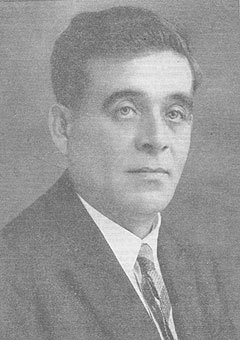A little child in the first grade of the Plovdiv school seemed glued to the brass band playing in the Tsar Simeon City Garden. It happened in 1889. Georgi was absolutely fascinated with marches, waltzes, mazurkas and fragments from operas by Verdi, Smetana, Gounod… Later he would too conduct the Guard Orchestra of Sofia and would emerge as an icon of Bulgarian serious music.

© Photo: bg.wikipedia.org
Georgi Atanasov was born in 1882 and was trained at the Bucharest School of Music. At 15 he enrolled in the orchestra of the Bucharest Opera House. He played the trombone but what mattered
was that the job took him closer to the magnificent art of opera that would become the focus of his professional life. In 1901 he was back to native Plovdiv but not for long. Encouraged and financed by his uncle, he left for Italy. In the town of Rossini, Pesaro, he studied music, conducting and composition for three years with the celebrated Pietro Mascagni. As a Maestro di musica graduate from the Rossini Lyceum, he returned to Bulgaria in 1903. His earliest dream was fulfilled as he was appointed to the position of a bandmaster. After a few brief tours to garrisons in Southern Bulgaria, he was once again back to Plovdiv. He started writing songs for schools and their choirs, and then operettas that lived to great success in the years that followed.For many years the workaholic composer neglected his health. With many coffee drinks and cigarettes he maintained a tempo presto. He rehearsed or conducted concerts during the day and composed during the night. This hectic schedule resulted in illness and in his early death, at just 50. In the autumn of 1931 he died in Italy where he had gone for treatment. Maestro Georgi Atanasov left a diverse and valuable legacy including his brilliant operas, magnificent examples for his followers.
Translated by Daniela Konstantinova
The 42nd song from the "Singing Artists" project is called " Vezna " (Scales) and is performed by Atanas Penev, known as the frontman of the B.T.R. band.Momchil Kolev wrote the music based on the lyrics of poet Kalin Donkov. The..
We start the New Year with a heart-warming song – The Key is G , performed by one of Bulgaria's beloved pop singers, Margarita Hranova . The poet Djina Dundova was inspired to write her beautiful verses by an old house in the Balkans. She dedicated..
Christmas has arrived! We are happy if we have warmth and manage to give love and a smile to the people around us. The Christmas mood is in the hearts, in the lights, the decorations and... in the songs. "For all of us, the bright..

+359 2 9336 661
